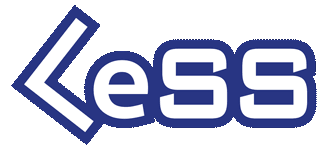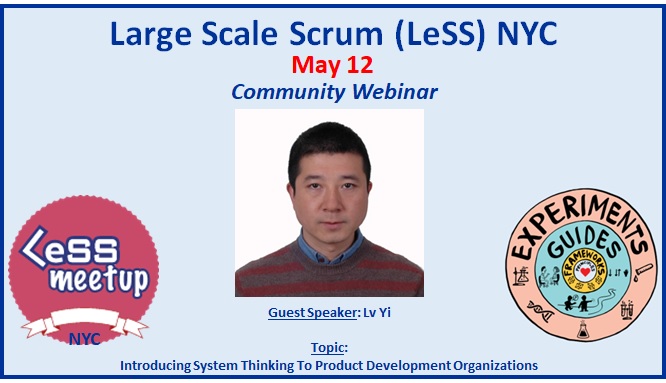Introducing System Thinking To Product Development Organizations, by Lv Yi
Synopsis:
Systems thinking is the fundamental discipline (aka the fifth discipline) to build a learning organization, while the way to deal with great uncertainty and complexity in product development is to continuously learn and adapt. We shall explore how to introduce systems thinking into product development organizations to improve the learning effectiveness.
Iterative development provides built-in learning opportunities - sprint review for product learning and sprint retrospective for process learning. In order to make the learning more effective, it is worth trying to introduce systems thinking into those events. However, if practicing systems thinking is too big a challenge, we may begin from impact mapping in product learning and root cause analysis in process learning, respectively. They are the stepping stones towards systems thinking.
Outline:
1. LeSS is a stairway to learning organization
2. Product and process learning in iterative development
3. Product learning - from impact mapping to system modeling
4. Process learning - from root cause analysis to system modeling
Speaker's Bio:
I am Yi Lv, living in Hangzhou, China. Lv, my surname, is probably hard to pronounce, as in fact, the correct Pinyin is Lü. So, pronounce as Lü and write as Lv:).
From late 2005, while working in Nokia Networks, I started to get acquainted with agile software development, in particular, Scrum. That turned out to be my first experience of LeSS adoption. Bas and Craig were both much involved in it, and I had learned greatly from them. I led a department inside that product organization and focused on developing teams and Scrum Masters to create sustainability. During the year of 2008, I also became the first Certified Scrum Trainer from China. I left Nokia Networks in late 2010 and joined Odd-e till now.
As a coach at Odd-e, I also worked in other industries such as Internet companies. My focus has been on large-scale product development, especially helping organizations benefit from LeSS and/or its adoption. One of those experiences has been documented as a LeSS case study, Huawei - LeSS without Scrum.
I have been learning and practicing systems thinking since 2009, after attending a workshop by Jean Tabaka and Bill Wake in Agile 2009 conference. Over the past couple of years, I wrote a series of blogs to help see system dynamics in organizational design and change. In China, I also initiated a great community group working together to “bring systems thinking to more people” since a year ago.
Why promoting systems thinking as a LeSS trainer and coach? I explained this in my view of LeSS. In short, I believe that LeSS opens up the stairway to a learning organization in the field of product development. I welcome you to be part of it.

